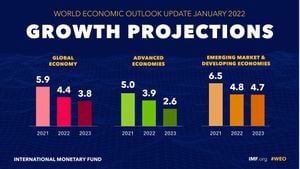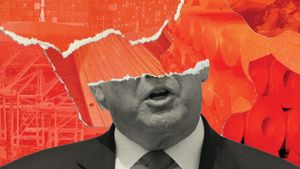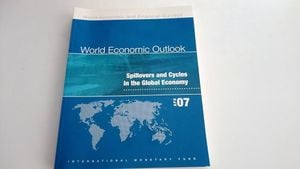House lawmakers have voted to approve a significant bipartisan bill aimed at enhancing Social Security benefits for millions of public service workers. The legislation, formally known as the Social Security Fairness Act, garnered substantial support with 327 votes favoring it and 76 against, marking a rare moment of cooperation between Democrats and Republicans.
This legislation stands to benefit approximately 2.8 million public sector employees, including teachers, firefighters, and police officers, providing them with increased Social Security payments upon retirement. Advocates for the bill argue it is long overdue, as these workers often contribute significantly to their communities yet find themselves penalized under current Social Security regulations.
One of the key provisions of the bill is the elimination of the Windfall Elimination Provision (WEP) and the Government Pension Offset (GPO). The WEP currently reduces Social Security benefits for individuals who receive pension benefits from work not covered by Social Security. Similarly, the GPO decreases spousal Social Security benefits based on government pensions. Both provisions disproportionately affect public service workers, many of whom are already under financial strain.
Among those championing the bill are Representatives Garret Graves (R-Louisiana) and Abigail Spanberger (D-Virginia). They expressed their commitment to improving the lives of those who serve the public, stating, "By passing the Social Security Fairness Act, a bipartisan majority of the U.S. House of Representatives showed up for the millions of Americans—police officers, teachers, firefighters—who have worked second jobs to make ends meet." They emphasized the importance of providing a secure retirement for public servants and their families.
On the other hand, the conservative advocacy group, The Club for Growth, voiced its opposition to the bill, warning it could significantly increase government deficits. They contend the current rules were established to help maintain the integrity of Social Security, ensuring the program remains solvent for future generations. The Congressional Budget Office projects the Social Security Fairness Act could add around $195.6 billion to the deficit over the next decade, raising concerns about the long-term financial health of the Social Security system.
Meanwhile, the bill awaits deliberation in the Senate, where it will require careful consideration to reach the president's desk for enactment. If approved, it could herald substantial changes for public service workers who have been affected by the WEP and GPO for decades.
Across the pond, state pensioners are anticipating financial boosts thanks to the Labour Party's commitment to the Triple Lock system, which guarantees pension increases based on the highest of inflation, wage growth, or at least 2.5%. This announcement denotes significant relief for the aging population, with experts estimating state pensioners may receive around £1,700 each due to these changes over the duration of Parliament.
Chancellor Rachel Reeves and Sir Keir Starmer's pledge to uphold this long-standing commitment ignites hope among state pensioners, boosting their financial security as living costs continue to rise. According to Spencer Churchill experts, this enhancement will provide individuals with greater stability, with planned increases for the full New State Pension next year reaching £460, pushing it from £11,502 to £11,962 annually.
Despite the positive outlook for many, not all changes are favorable. A significant alteration to the eligibility criteria for the Winter Fuel Payment is forthcoming, which will see the number of pensioners eligible for this financial aid drop from 11.4 million to just 1.5 million. This loss of benefits, primarily affecting those who do not claim Pension Credit, may leave vulnerable populations without the necessary support during tough economic times.
The government has assured its commitment to assisting pensioners, not only through maintaining the Triple Lock but also via investments like the £6.6 billion Warm Homes Plan. This initiative aims to upgrade five million homes for greater energy efficiency, which could help alleviate rising costs as winter approaches. The Department for Work and Pensions is also actively promoting Pension Credit, aiming to increase awareness among the nearly 880,000 eligible individuals who may currently be missing out.
Back to the American front, the repercussions of changing Social Security benefits remain contentious. The Social Security Fairness Act has brought together supporters and critics alike, with contrasting views on the necessity for comprehensive Social Security reforms. Supporters hail it as progress, emphasizing the need to restore fairness to public service workers who contribute to society yet suffer financially due to outdated provisions.
Conversely, critics have pointed out the potential risks of adding to the deficits and the urgency of addressing broader financial reform within the Social Security system itself. They argue politicians should concentrate on developing sustainable funding solutions rather than merely sidelining issues of solvency for immediate political gain.
Through bipartisan efforts, organizations like the National Committee to Preserve Social Security and Medicare have expressed cautious optimism about the Social Security Fairness Act, viewing it as “a step in the right direction.” Yet, advocates for more comprehensive legislation, such as the Social Security 2100 Act, argue such piecemeal approaches fail to address the overarching challenges facing the program.
Despite the hurdles, this wave of legislative activity surrounding Social Security signals potential changes on the horizon. The debate over pension benefits encapsulates broader discussions about economic security for public service workers and the fiscal responsibility of sustaining one of America’s most fundamental social safety nets.
Many will be closely tracking the fate of the Social Security Fairness Act as it makes its way through the Senate and cautiously observing how these developments may intertwine with the overall economic climate—essentially defining the financial futures of millions of Americans reliant on Social Security.



